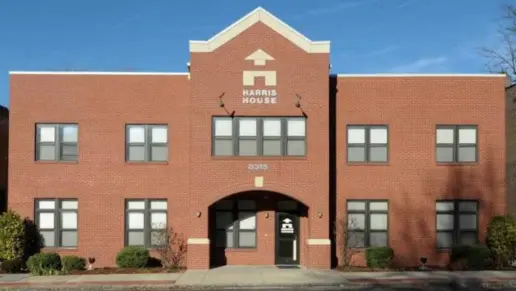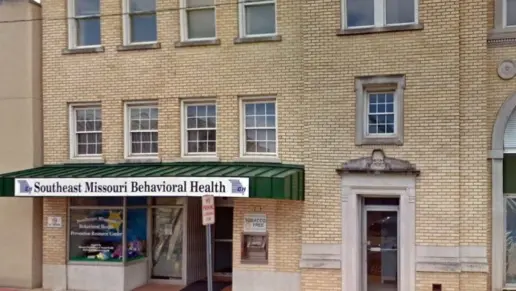I was a 23 day resident and I would recommend this facility to anyone looking to take control of there life..shout out to all the staff very nice and maintained facilities and the all the staff were very professional
About The Aviary Recovery Center
The Aviary Recovery Center is a drug and alcohol rehab center in Eolia, Missouri. They specialize in providing treatment for adults who are struggling with substance use disorders. The levels of care offered here include medical detox and residential treatment. They accept credit or debit card payments and work with the VA community care network as well as a variety of other insurance providers.
This facility is unique because it gives you access to a variety of different recovery services including medication-assisted treatment (MAT), equine-assisted therapy, eye movement desensitization and reprocessing (EMDR), individual treatment planning, nutrition and exercise training and alumni support.
During treatment, you’ll work directly with a nutrition counselor who will help you develop healthy meal plans and tasty recipes. This can encourage you to prioritize self-care and boost your self-confidence. Promoting healthier eating habits can also reduce illness, improve your mood, help with weight management, strengthen your immune system, and lower the risks of heart disease.
Nutrition can be combined with exercise to do wonders for your mental health. Here, they give you opportunities to work out so you can stay physically fit as you recover. Exercise can increase energy, improve brain function and your physical health, and help you stay motivated during treatment.
Many clients participate in the equine-assisted therapy program. As you work with the horses on-site, you’ll learn how to develop boundaries, reduce anxiety, combat depression, and manage stress. This therapy utilizes rescue horses to help clients encourage connection and develop trust. Grooming, feeding, leading, riding and playing with the horses are some of the many activities you will engage in.
When you complete residential treatment, they can connect you to outpatient care to help you maintain long-term sobriety. The greater Eolia region is filled with local resources you can use. Located a little over an hour from St. Louis and about 3.5 hours from Kansas City, it has lots of natural areas to explore for peaceful meditation. You can also check out the historic district when you’re ready to engage in sober recreation.
Facility Overview
Rehab Score
Gallery
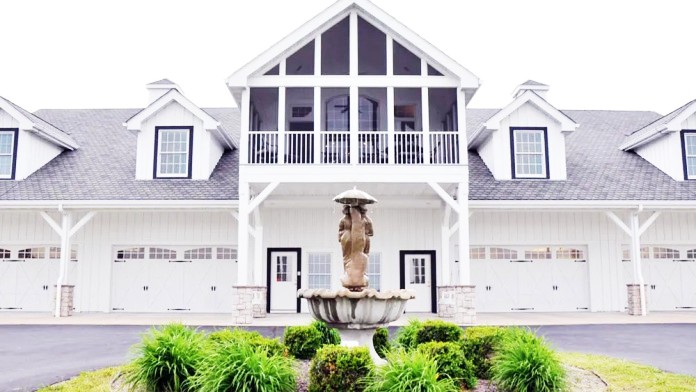

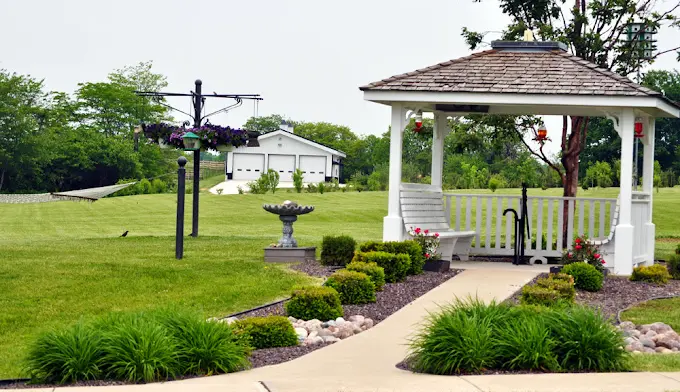
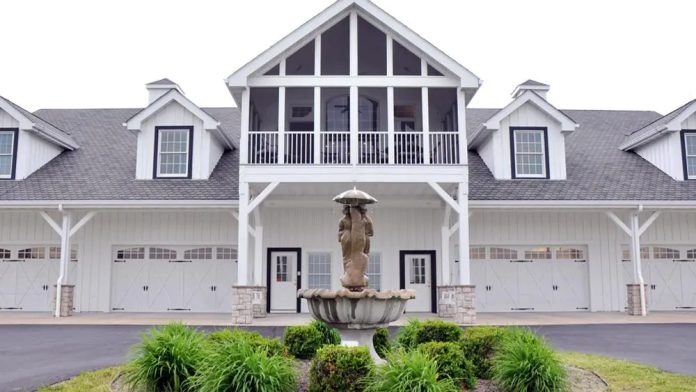
Location
Accepted Insurance



Other Forms of Payment
Private insurance refers to any kind of healthcare coverage that isn't from the state or federal government. This includes individual and family plans offered by an employer or purchased from the Insurance Marketplace. Every plan will have different requirements and out of pocket costs so be sure to get the full details before you start treatment.
Self-pay involves paying for treatment out of your own pocket. You can use savings or credit, get a personal loan, or receive help from family and friends to fund your treatment. If you don't have insurance or your insurance plan doesn't cover a specific program, self-pay can help ensure you still get the care you need.
Addiction Treatments
Levels of Care
Treatments
The goal of treatment for alcoholism is abstinence. Those with poor social support, poor motivation, or psychiatric disorders tend to relapse within a few years of treatment. For these people, success is measured by longer periods of abstinence, reduced use of alcohol, better health, and improved social functioning. Recovery and Maintenance are usually based on 12 step programs and AA meetings.
Drug rehab in Missouri usually involves several phases: detox, rehab, and aftercare. The rehab phase may include a combination of inpatient and outpatient treatments, as the individual moves through a continuum of care on their recovery journey.
Many of those suffering from addiction also suffer from mental or emotional illnesses like schizophrenia, bipolar disorder, depression, or anxiety disorders. Rehab and other substance abuse facilities treating those with a dual diagnosis or co-occurring disorder administer psychiatric treatment to address the person's mental health issue in addition to drug and alcohol rehabilitation.
A combined mental health and substance abuse rehab has the staff and resources available to handle individuals with both mental health and substance abuse issues. It can be challenging to determine where a specific symptom stems from (a mental health issue or an issue related to substance abuse), so mental health and substance abuse professionals are helpful in detangling symptoms and keeping treatment on track.
Opioid rehabs specialize in supporting those recovering from opioid addiction. They treat those suffering from addiction to illegal opioids like heroin, as well as prescription drugs like oxycodone. These centers typically combine both physical as well as mental and emotional support to help stop addiction. Physical support often includes medical detox and subsequent medical support (including medication), and mental support includes in-depth therapy to address the underlying causes of addiction.
Programs


Clinical Services
Cognitive Behavioral Therapy (CBT) is a therapy modality that focuses on the relationship between one's thoughts, feelings, and behaviors. It is used to establish and allow for healthy responses to thoughts and feelings (instead of unhealthy responses, like using drugs or alcohol). CBT has been proven effective for recovering addicts of all kinds, and is used to strengthen a patient's own self-awareness and ability to self-regulate. CBT allows individuals to monitor their own emotional state, become more adept at communicating with others, and manage stress without needing to engage in substance abuse.
Dialectical Behavior Therapy (DBT) is a modified form of Cognitive Behavioral Therapy (CBT), a treatment designed to help people understand and ultimately affect the relationship between their thoughts, feelings, and behaviors. DBT is often used for individuals who struggle with self-harm behaviors, such as self-mutilation (cutting) and suicidal thoughts, urges, or attempts. It has been proven clinically effective for those who struggle with out-of-control emotions and mental health illnesses like Borderline Personality Disorder.
Peer support within a group therapy session in Missouri allows you to interact with your peers who are also struggling with drug addiction. You can share your stories and learn how to express your emotions openly in a non judgmental setting. These strategies help to reduce your feelings of isolation which are often associated with addiction.
In individual therapy, a patient meets one-on-one with a trained psychologist or counselor. Therapy is a pivotal part of effective substance abuse treatment, as it often covers root causes of addiction, including challenges faced by the patient in their social, family, and work/school life.
Motivational Interviewing (MI) is a clinical approach to helping people with substance abuse issues and other conditions shift behavior in positive ways. It is more goal-oriented than traditional psychotherapy, as MI counselors directly attempt to get clients to consider making behavioral change (rather than wait for them to come to conclusions themselves). Its primary purpose is to resolve ambivalence and help clients become able to make healthy choices freely.
Trauma therapy addresses traumatic incidents from a client's past that are likely affecting their present-day experience. Trauma is often one of the primary triggers and potential causes of addiction, and can stem from child sexual abuse, domestic violence, having a parent with a mental illness, losing one or both parents at a young age, teenage or adult sexual assault, or any number of other factors. The purpose of trauma therapy is to allow a patient to process trauma and move through and past it, with the help of trained and compassionate mental health professionals.
Couples therapy in Missouri deals with the problems each partner has within themselves and with each other. Sessions may be held jointly and others individually to address these issues and help each partner learn how to manage challenges in healthy ways.
The Family Wellness Program allows family members to become engaged in the process of helping and supporting their loved one. At The Aviary, they take the opportunity to create an experience that is safe, supportive, educational and positive for the family and loved ones of the alcoholic or addict. They take the time to provide education about communication, accountability and support groups.
Nutrition therapy, aka medical nutrition therapy (MNT), is a way of treating physical, emotional, and medical conditions through diet. All meals during your stay will be provided and prepared on site by a dietary team, overseen by their chef that focuses on nutritional balance and diversity. If you have any dietary restrictions, please notify the staff immediately so that they can accommodate you appropriately. In addition to these mealtimes, you have access to healthy snack options that are provided. They focus on balance: caloric intake is a priority of their integrated whole health approach.
Amenities
-
Gym
-
Residential Setting
-
Private Rooms
Accreditations

The Joint Commission, formerly known as JCAHO, is a nonprofit organization that accredits rehab organizations and programs. Founded in 1951, the Joint Commision's mission is to improve the quality of patient care and demonstrating the quality of patient care.
Joint Commission Accreditation: Yes
Accreditation Number: 601010
Contact Information
22933 Highway 61
Eolia, MO 63344







